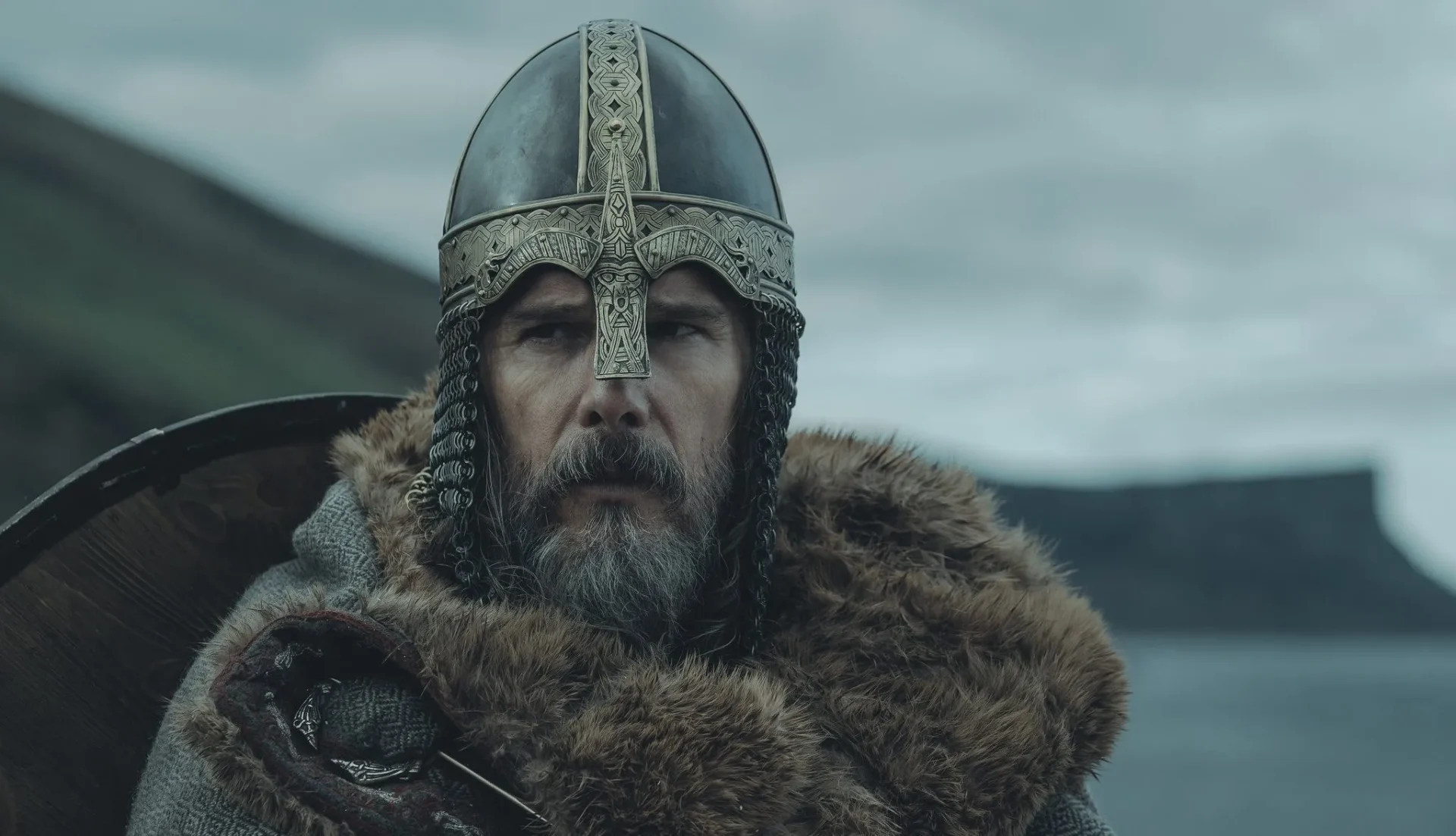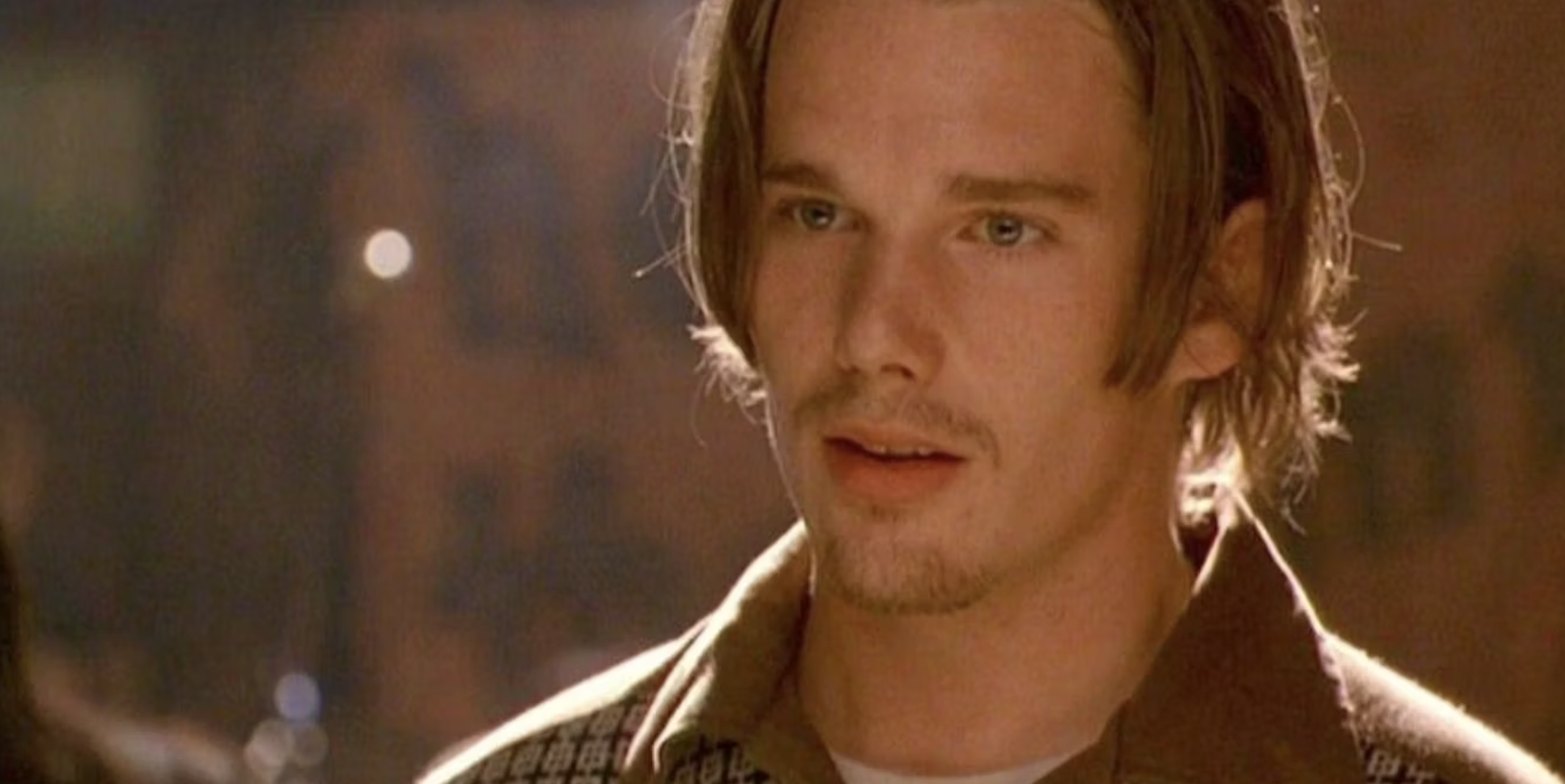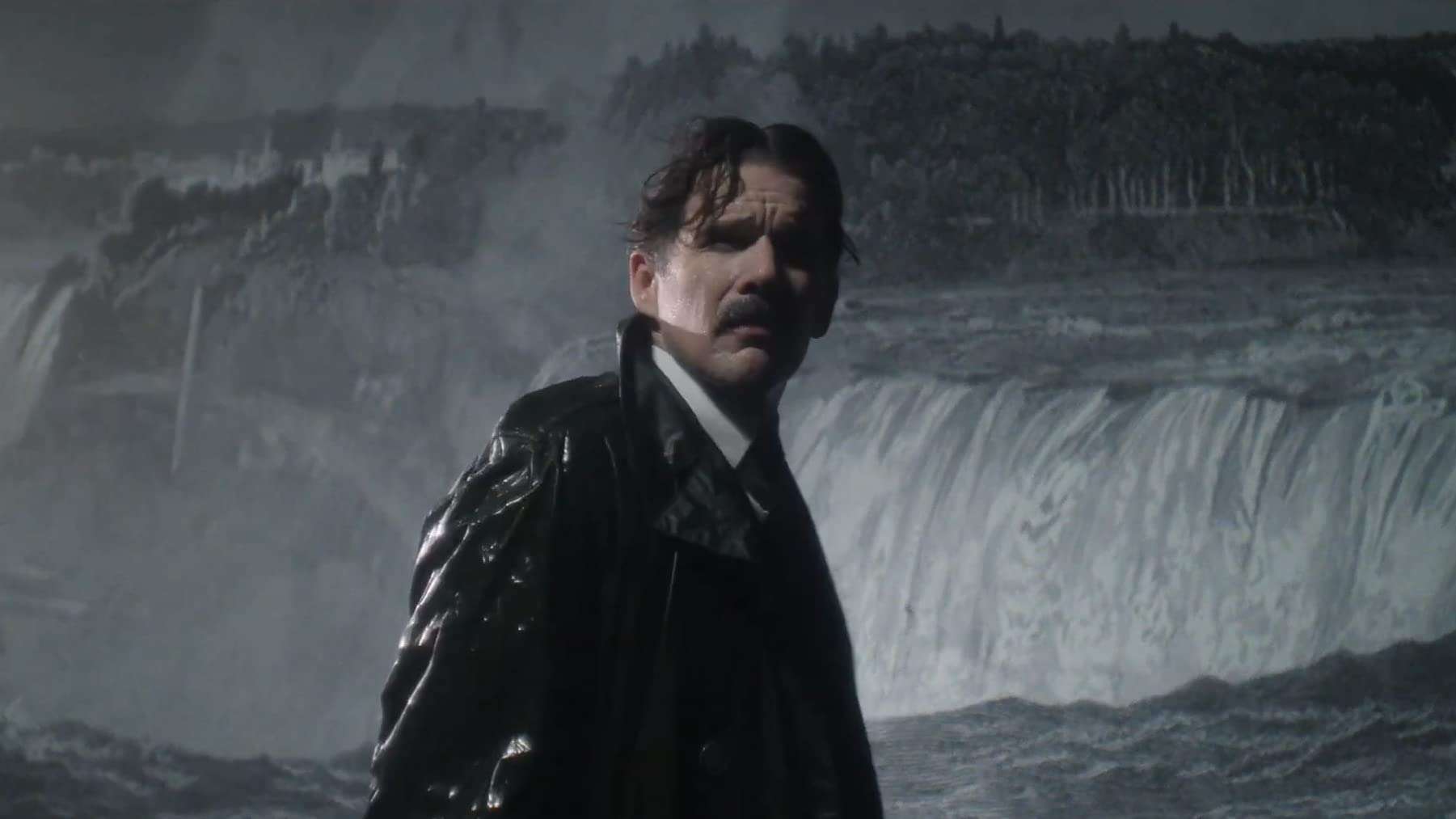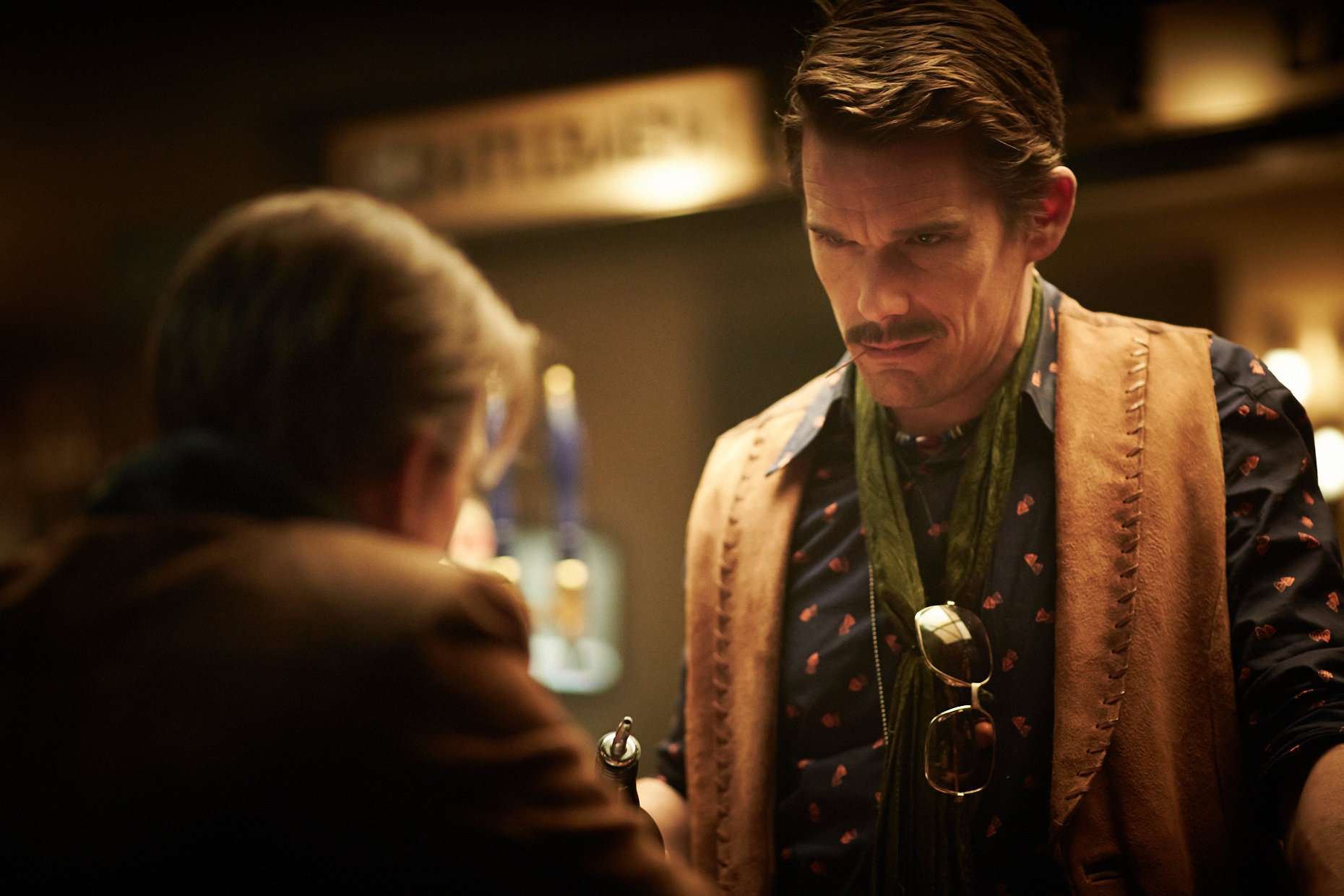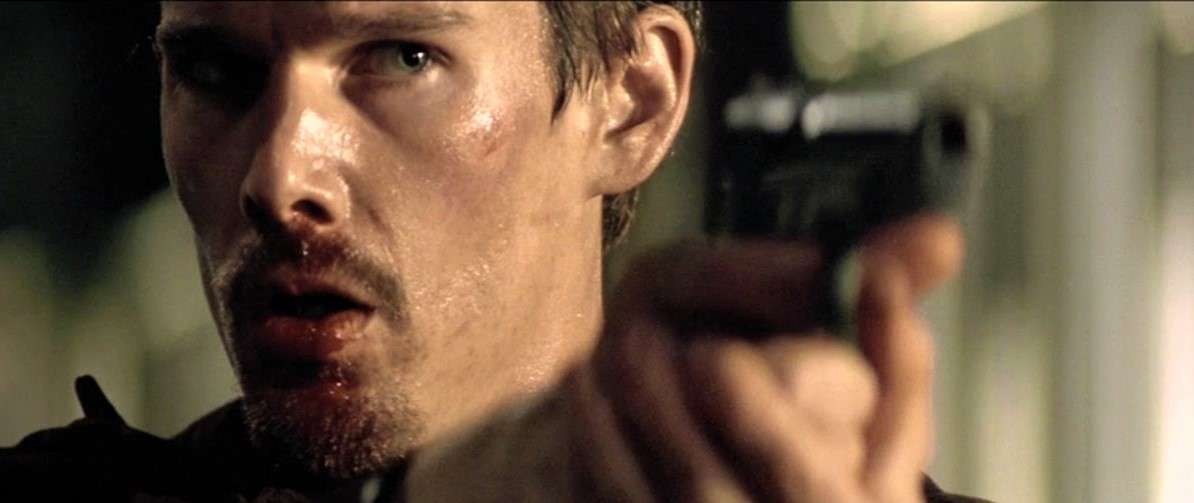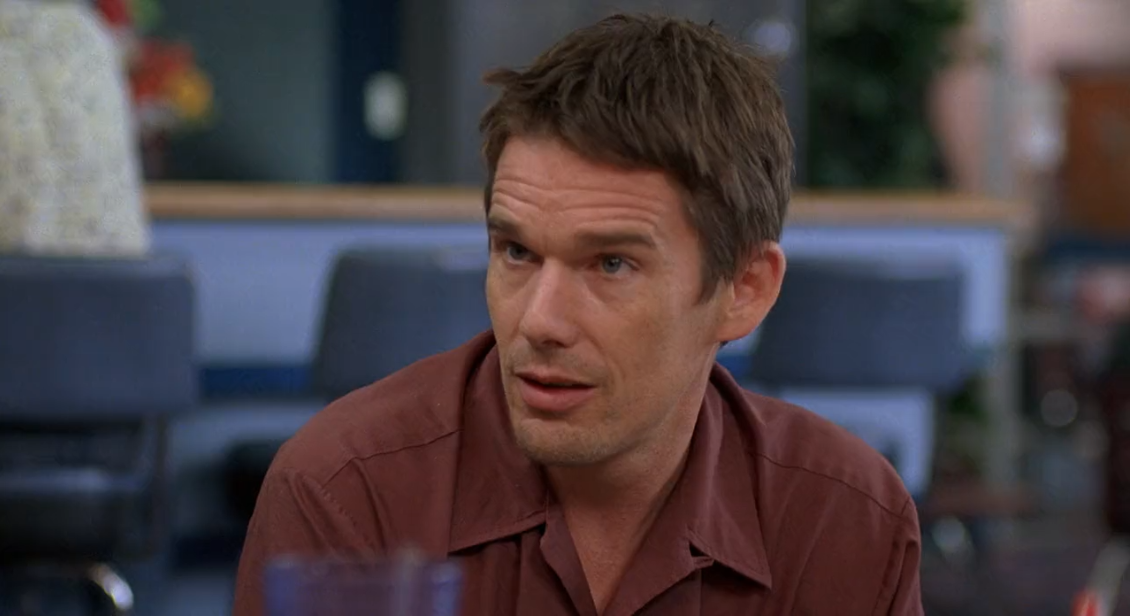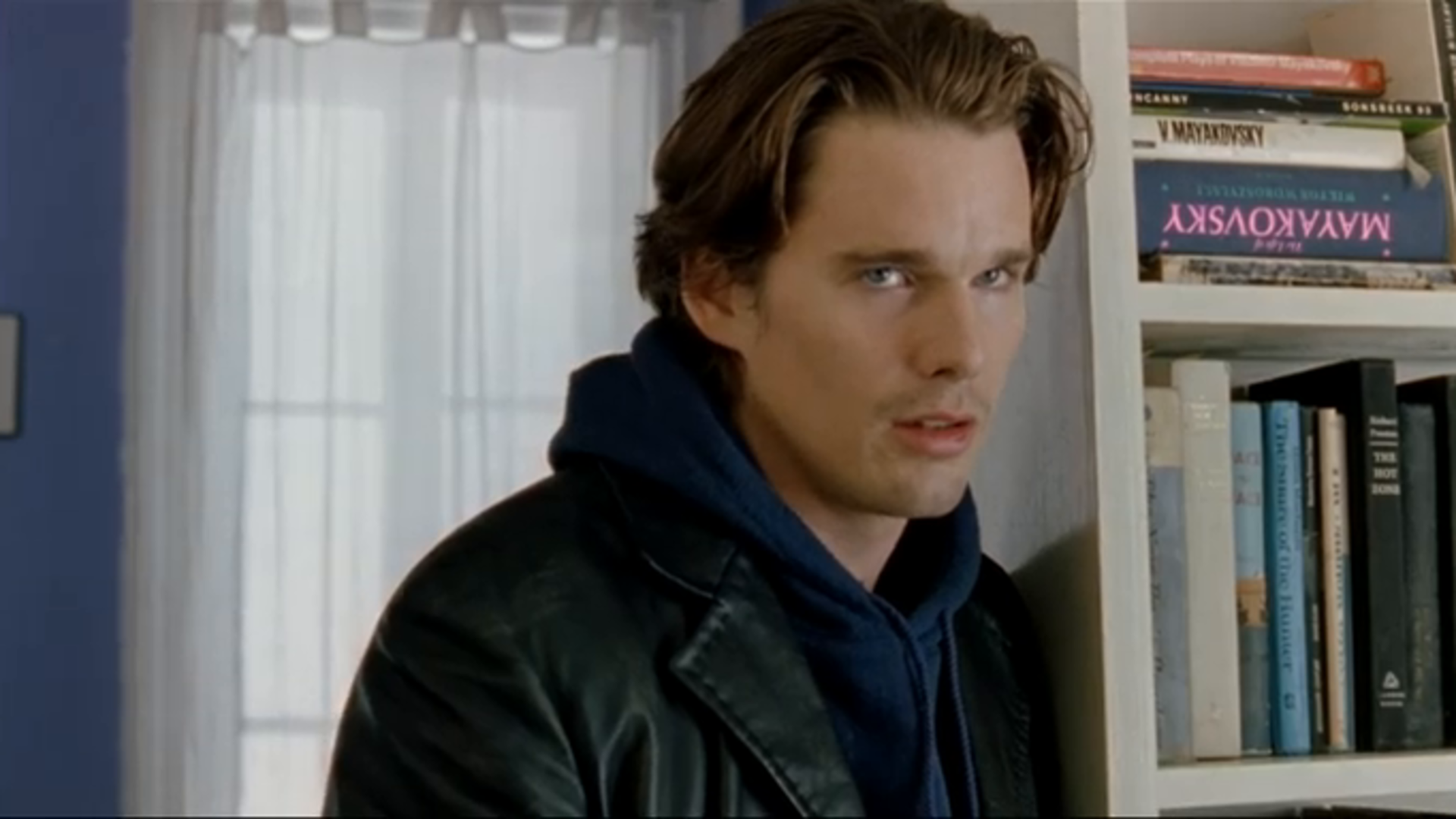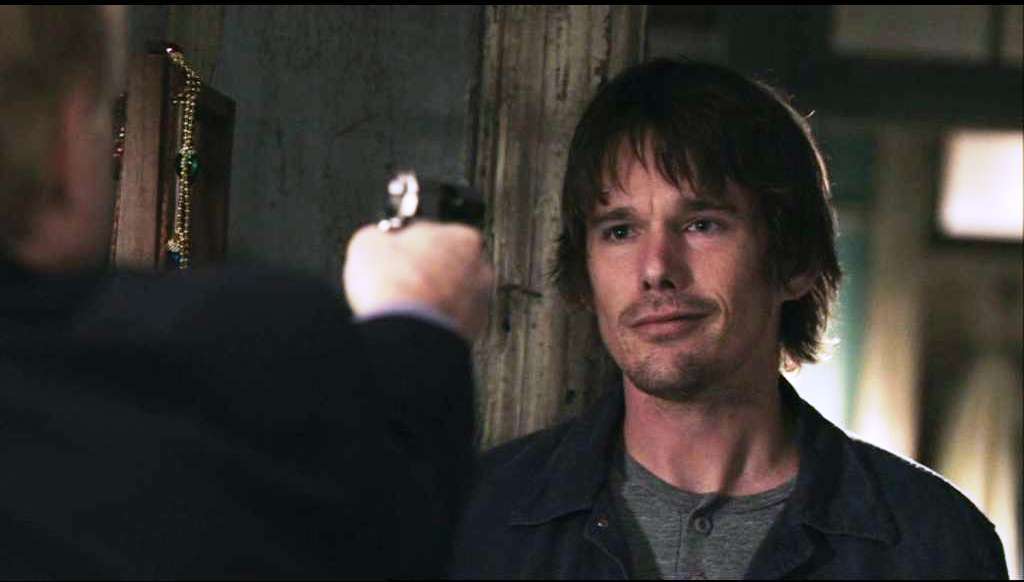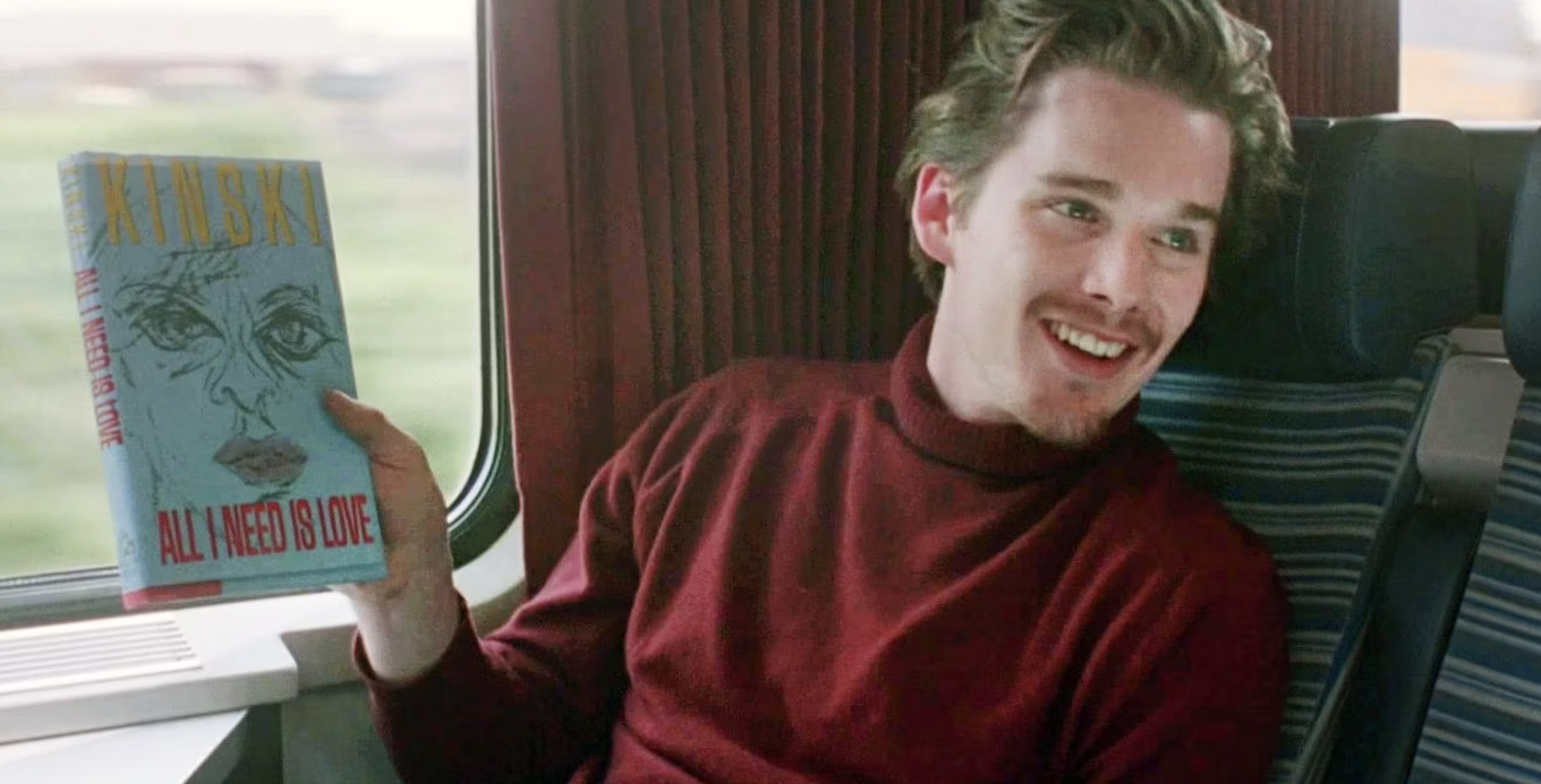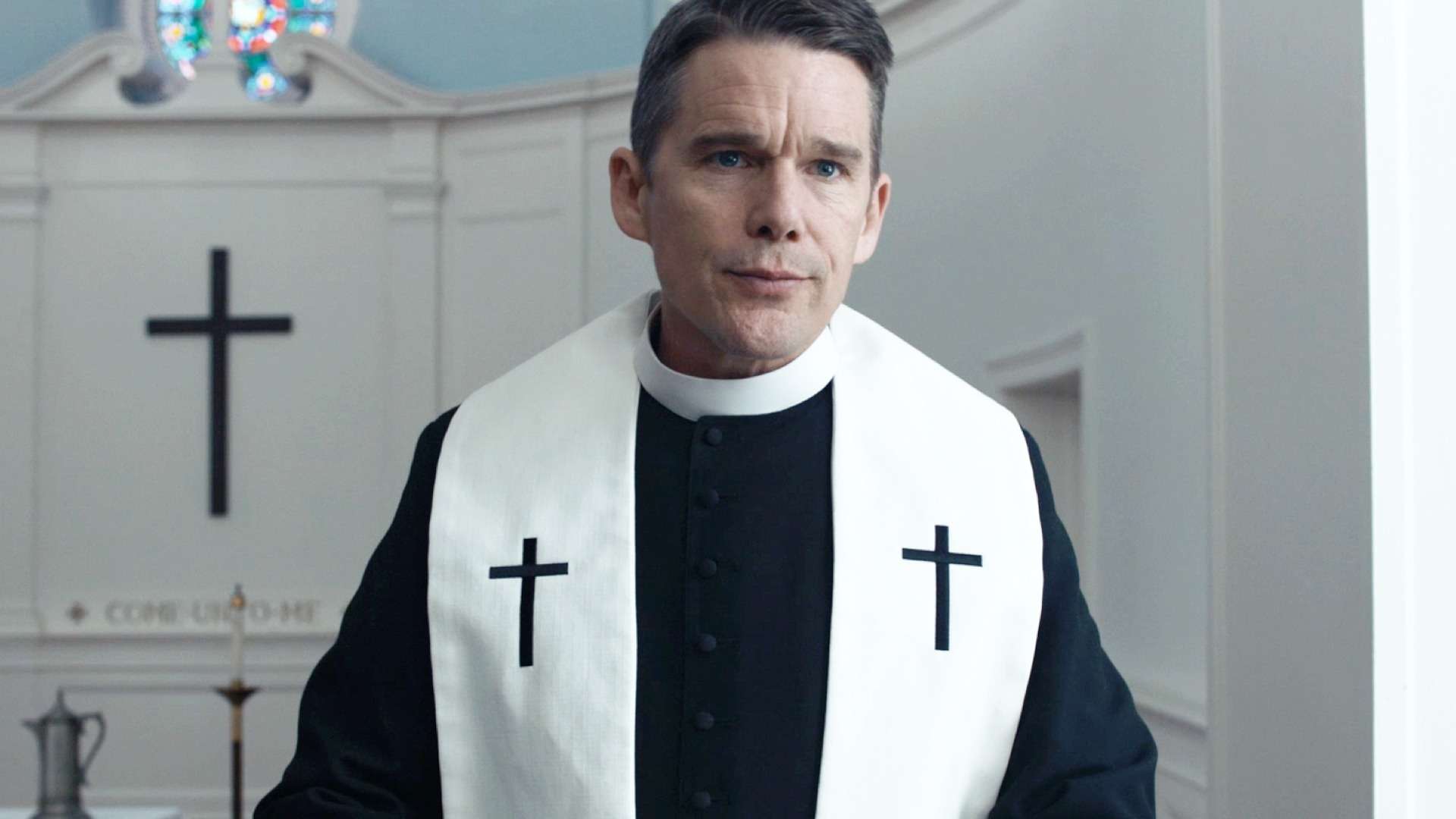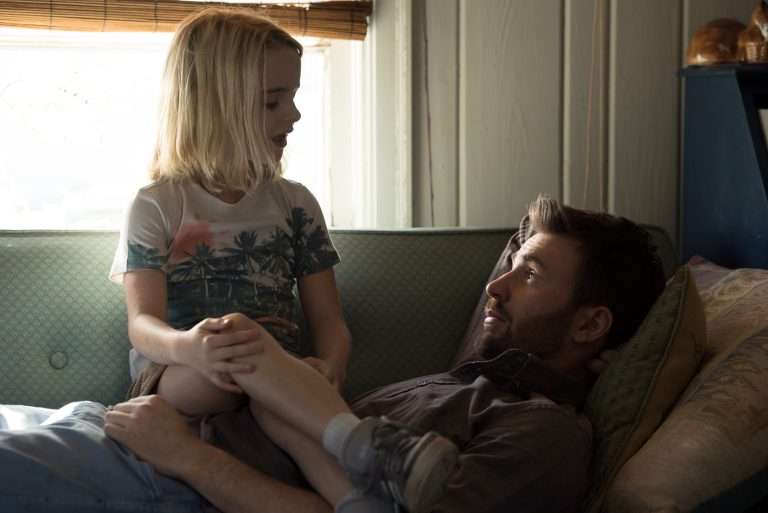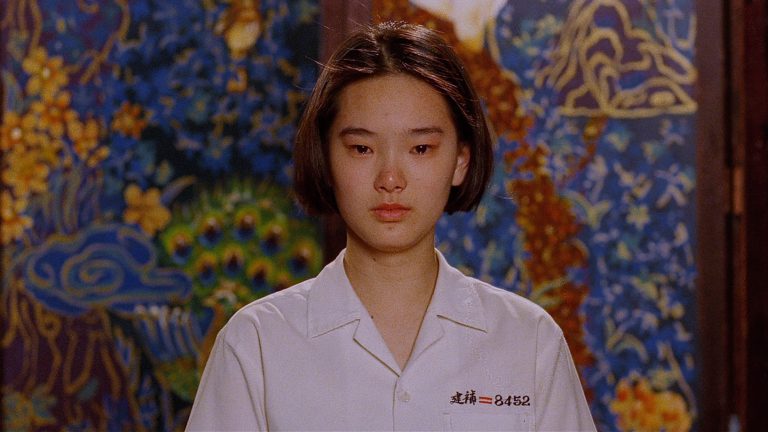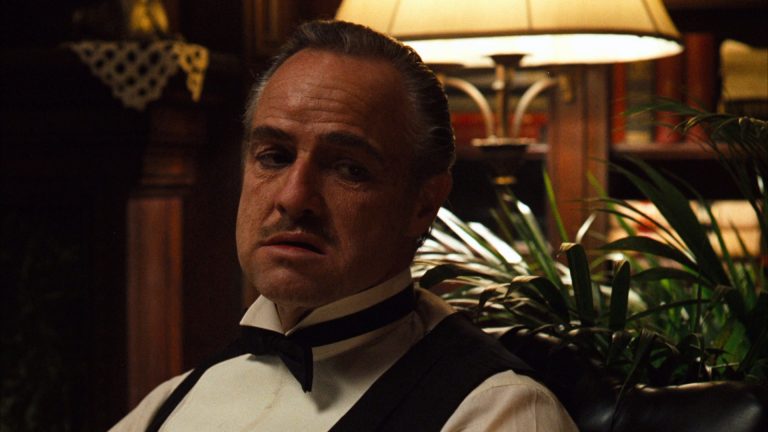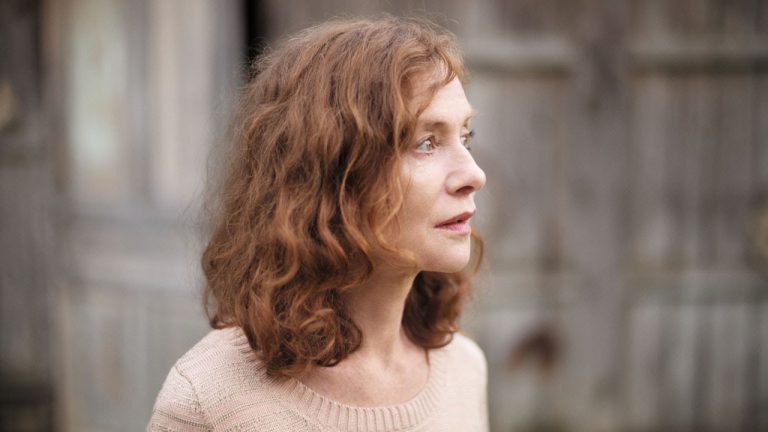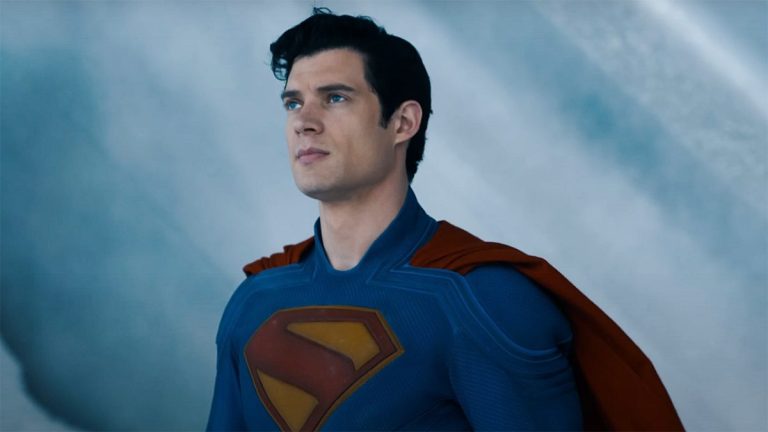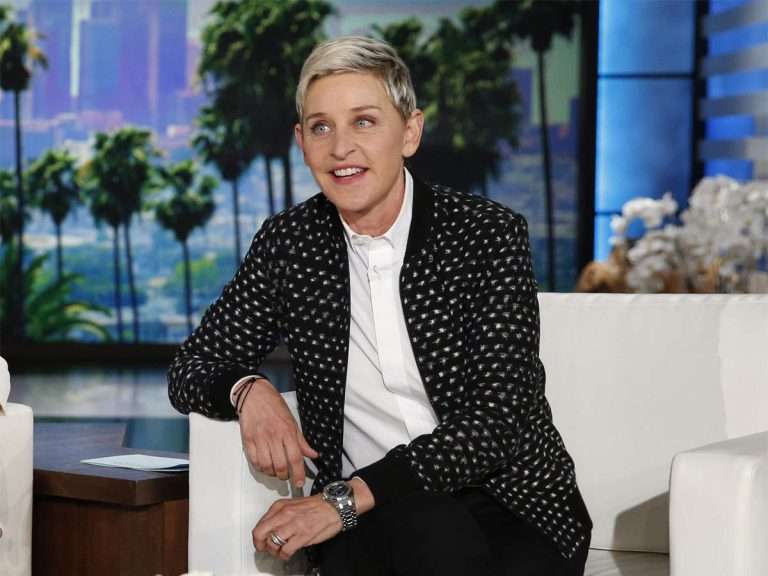If you were one of the (admittedly few) people to watch Abel Ferrara’s film Zeroes and Ones in 2021, you’ll remember a rather surprising start to the movie. The movie’s star, Ethan Hawke, appears in a charmingly homespun video introducing the film to viewers and explaining the process by which he and Ferrara crafted the picture. “Zeros and Ones” will not be making this list, but the anecdote is a worthwhile reminder of the passion and energy that Ethan Hawke carries into his greatest roles.
First and foremost, Ethan Hawke is an immensely likable performer and public figure, carrying himself with pathos and humor. His skill set has lent itself to a tremendously varied filmography. A cinephile may primarily associate Hawke with Richard Linklater, his friend and collaborator with whom he co-wrote the excellent “Before” trilogy. Members of the public may be quicker to associate him with modern horror classics “The Purge,” “Sinister,” or the more recent hit “The Black Phone.” In the ’90s, he flirted with becoming a true movie star, leading the line in “Reality Bites” and “Gattaca.” Still, ultimately, his interests in directing films, acting on Broadway, and collaborating with his friends behind the scenes have made him a beloved fixture of independent cinema. Whatever brand of Hawke you love, you’re bound to find a hidden gem or established classic in this countdown of his ten best performances to date.
10. The Northman (2022)
Visionary director Robert Eggers transferred his fascination with the oblique and the occult to first-century Scandinavia for “The Northman,” among the most ambitious films of the decade thus far. The film is grimly gorgeous and has a sense of scope and world-building far beyond the modest revenge tale at its core. Integral to the experience is the all-star cast: Alexander Skarsgard, Nicole Kidman, Anya Taylor-Joy, Willem Dafoe, and even Björk gets in on the action.
Ethan Hawke’s appearances are brief but pivotal. As the slain father of the protagonist, Amleth, he must demonstrate the compassion and strength of an honest leader and father before his murder. Sadly, a quite powerful scene in which he preaches to his son about his success in battle was deleted from the theatrical edition. Standing out from the crowd in such a stacked cast isn’t easy, but the role required a performer of Hawke’s empathy and instant approachability. You relate to the young Amleth, and he watches in awe at his father’s feats. In an age where too many artists are afraid to take risks, Eggers and his collaborators deserve immense credit for going for broke with such a bloodied, brutal epic revolving around a heartfelt attachment of one hero to his family.
9. Reality Bites (1994)
To call “Reality Bites” ‘dated’ is to undermine its charm and importance as a valuable social artifact. No film of the early-to-mid ‘90s so acutely captured the postgraduate milieu of the white Gen X middle class, and every “Garden State” or “500 Days of Summer” to come after owes a massive debt to Ben Stiller’s directorial debut feature. This includes the more troublesome aspects of the film, the ‘manic pixie dream girl’ archetype, perhaps, as well as its sharp dialogue and enjoyable characters.
The film is essentially a love story between Ryder’s Lelaina and Troy, played brilliantly by Ethan Hawke. The two have natural chemistry (and history) but are kept apart by their differing ambitions: while Troy is a charming layabout, Lelaina aspires to make ponderous documentaries. Both live far more comfortable lives than that description would have you believe, but who’s to say that escapism can’t be part of the movie’s magic? For a generation of filmgoers, “Reality Bites” mirrored their postgrad experiences and acted as a filter to view their past and present with more attractive people and beautiful photography (from Emmanuel Lubezki, of all people). It will never be as fresh as it was in 1994, but “Reality Bites” has gained a new sense of purpose and feeling three decades later.
8. Tesla (2020)
Lost in the chaos of delayed releases in 2020, Hawke re-teamed with frequent collaborator Michael Almereyda for this unconventional biopic on a founding figure of modern society. As much as it celebrates his inventions, this retelling of Nikola Tesla’s life also meditates on the nature of American mythmaking, how reputation precedes achievement, and vice versa. Hawke’s performance is integral to the movie’s success, eschewing stereotypes of the troubled genius to deliver a man fully aware of the challenges he faces personally and professionally. This includes his interactions with Thomas Edison, played excellently by Kyle MacLachlan.
This is a subtle performance by Ethan Hawke, one which draws on introspection and self-awareness as crucial components of Tesla’s genius. With the movie’s breaking of the fourth wall, this takes on a formal capacity, the kind of eccentric visual flourish Almereyda has perfected across his career. Though “Tesla” wasn’t the hit it should have been, it’s still refreshing to see Hawke tackle a heavy, prestigious leading role at this stage of his career. If you adored Oppenheimer’s visually compelling take on the Promethean battle between man and his own capabilities, then Tesla’s similar approach could be up your alley.
7. Predestination (2014)
This Australian sci-fi flick does a lot with a little, subverting the well-established tropes of time travel. It’s one of those rare sci-fi films that uses its fantastical conceit to do exciting things with storytelling, in this instance, an ingenious non-linear structure. Hawke’s performance, surrounded by Aussie character actors, including future “Succession” star Sarah Snook, grounds the high concept with emotional stakes. The loops of time travel have rendered Hawke numb to the vicissitudes of life, harming his relationship with his loved ones and heightening his desire to solve crimes before they can be committed.
Based on the plot description, “Minority Report” comes to mind as a visible influence, but also the more intellectual ‘hard’ science fiction of the 1970s. Twin brothers Peter and Michael Spierig deserve all the credit in the world for helming such a modest production with such lofty ambitions. Ethan Hawke’s name on the poster probably attracted a small wave of foreign interest in “Predestination” in 2014, perhaps because it’s the kind of accessibly clever film you can recommend to just about anyone. Sadly, the Spierigs would be underwhelmed by their follow-up “Jigsaw” (part of the Saw franchise), but Hawke appeared reinvigorated and ready to enter a fruitful middle age.
Also read: 10 Great Time Travel Movies You Should Watch
6. Training Day (2001)
Let’s be honest: Ethan Hawke’s wasn’t the best performance on “Training Day.” Antoine Fuqua’s enthralling crime drama is most famous for Denzel Washington’s wailing guitar solo in the lead role. Detective Alonzo Harris is one of cinema’s greatest embodiments of corrupted masculinity, a man whose moral code is inseparable from his own self-interest. Washington won a deserved Oscar for his work, but Hawke was nominated and received the lion’s share of screen time. Alonzo is such a compelling character because we view him through the perspective of Hawke as Jake Hoyt, an ostensibly upstanding citizen whose naivety makes him ill-suited to be an efficient cop or protector of deprived, majority African American communities.
The interplay between the two cleverly skews the interracial buddy cop formula established by “48 Hours” and “Lethal Weapon”; each interaction is one of fear and domination. Set within a single working day, the razor-sharp screenplay from David Ayer nails both the procedural aspects of the cop drama (another convention it wishes to break) and the characterizations, both minute and broad. Alongside Hawke and Washington, a supporting cast, including the ever-dependable Scott Glenn and, more surprisingly, Dr. Dre and Snoop Dogg, make sure that each scene simmers with energy and tension. An edge-of-your-seat experience no matter how many times you rewatch it, “Training Day” has earned its legendary reputation and was one of Ethan Hawke’s first great performances.
5. Boyhood (2014)
Hawke earned a second supporting actor nomination for “Boyhood,” though as is typical with Hawke and director Richard Linklater, the collaboration went more profound than that. “Boyhood” was, of course, filmed over 12 years, tracking a boy’s journey from 6 to 18 in a typically laid-back fashion, a production schedule which most of all demanded a great deal of trust and love from the actors. The film’s themes of time and how people and things change were discussed at length upon release when the waves of good reviews anticipated a somewhat expected backlash. Ten years later, “Boyhood” is fantastic for the same reasons as the rest of Linklater’s best work: an accessible watch that is funny, occasionally moving, and enjoyably naturalistic.
Hawke plays Mason Sr., the father of the film’s protagonist, Mason. The parents are divorced, though in an interesting dramatic ploy, Linklater avoids the obvious potential drama of having them divorce over the course of the film. We meet Mason as a six-year-old, and the tricky, quasi-estranged relationship between Mason Sr. and his mother (an Oscar-winning role for Patricia Arquette) is already apparent.
The role emphasizes Hawke’s immediate likability – the children of divorce can relate to how Mason Sr., with whom the children spend much less time, seems more approachable and kind because he lives with less responsibility. As Mason Jr. grows, so does his father, who ultimately matures into a slightly annoying gun-toting Christian, a progression that reconciles his values but doesn’t wrap up the story in a neat bow. The development of the role, honed over 12 years by Hawke, is fascinating and a testament to the nuances at which Hawke can excel.
4. Hamlet (2000)
It’s easy to make a competent version of “Hamlet”; the wonderful poetry and immense depth of Shakespeare’s dialogue have made it a staple of theatre and, of course, film for centuries. Making one that stands out requires some serious skill and a dedicated and nuanced performance. Michael Amlereyda’s “Hamlet” was released at the dawn of the new millennium. As opposed to Kenneth Branagh’s ornate period piece four years prior, it is decidedly modern with its setting and visual palette. Here, Denmark is a corporation, and nobody is free from the wrath of surveillance cameras situated around the building.
Any production of “Hamlet” lives and dies off the lead performance, and Hawke is excellent in the role. Stuck in a state of perpetual melancholy, this is the character at his most pathetic and pleading. Placing the drama inside a corporation rather than a country has driven home how everybody’s actions are born from an immense privilege. This makes the family quarrels so terrifically entertaining, and I wouldn’t be surprised if the writers of HBO’s “Succession” took inspiration from what Almereyda and Hawke accomplished here. In one of the gutsiest and most prestigious roles of his career, Hawke rose to the challenge, demonstrating the chops that made him soar on Broadway and the features that make him such a compelling movie star.
3. Before the Devil Knows You’re Dead (2007)
The final film of the great American director Sidney Lumet, and what a note to leave on. A smartly constructed and flawlessly performed drama, “Before the Devil Knows You’re Dead” follows two brothers on opposite sides of the economic spectrum who conspire to rob their own parents’ jewelry store. The idea seems unfathomable, and though the older brother Andy (Philip Seymour Hoffman) is driven by a desire to manipulate those who made him feel inferior, Hawke’s character Hank is driven by pure desperation. The opening fifteen minutes establishes his situation, namely that he is unable to pay child support or for his daughter to take a field trip. Despite having less confidence than Andy, he is made to take the reins of the operation by his wealthier brother, and the consequences are devastating.
Particularly compelling is how the two brothers interact with their father, played masterfully by Albert Finney. He’s not a particularly domineering figure in grand cinematic terms, but he exerts a level of power and control quietly synonymous with 20th-century fatherhood. Andy accuses him of preferring Hank, but in truth, Finney’s character has no respect for Hawke’s cowardice, and while he has less love for Hoffman’s Andy, he sees him as an equal. The film’s final 20 minutes are about as breathtakingly bleak as cinema gets, a tour de force of violence and tragedy that appropriately caps off Lumet’s five-decade career: Since his passing, this sort of middle-budget, middle-brow but high-quality filmmaking has been in short supply.
2. Before Trilogy (1995; 2004; 2013)
Everybody has their favorite entry, but the “Before” trilogy represents a complete piece of work integral to Hawke’s life and career. You’re probably familiar with the premise: three entries over 18 years, each chronicling a day in the life of Celine and Jessie in a typically philosophical, dialogue-heavy, Linklater-esque fashion. We meet the pair on their first star-crossed encounter in Vienna and end with them tempestuously married on a Greek island: a complete emotional journey carried by two extraordinary performers. Hawke and Delpy’s chemistry is one of modern cinema’s greatest marvels, an unstoppable force of cutesy back-and-forth and pained emotional depth. It probably helped that both performers helped to write the second and third installments of the trilogy with Linklater, earning Oscar nods on both occasions.
Hawke, as Jesse, switches effortlessly between confident and charming author and lovesick puppy defined by his vulnerabilities: he has the confidence to approach Celine on a train and the dedication to move to France to be with her. These contradictions are best pronounced in the second installment, “Before Sunset,” a masterclass from Hawke, who depicts the strife of an unhappy married life and the desire to rekindle romance with true love. When he says the famous line that his married life is like “running a daycare with somebody I used to date,” your heart breaks with this realization of middle age, a line perhaps informed by Hawke’s or Linklater’s own experiences, which nevertheless relates universally.
1. First Reformed (2017)
Paul Schrader likes movies about men in rooms, their notebooks, and their memories. Each of his protagonists carries the baggage of trauma and prejudice and a fundamental sense of guilt. Combine these instincts with his Calvinist upbringing, and it is not surprising that Schrader would eventually make a film about a man of the cloth. In “First Reformed,” Hawke plays a pastor wounded by his past, especially the fate of his son who fought in the Middle East. He has to fend off the loving advances of a colleague whom he hates and extremist activists targeting the church. The plot reaches the sort of transcendent cinema Schrader has long admired and practiced, particularly in exchanges between Hawke and a career-best Amanda Seyfried as the activist’s pregnant wife.
Hawke is simply outstanding as a man grappling with his vocation’s financial and moral aspects. His distress is palpable as the church faces pressure from above and increasing indifference from the local community. The character acts as if he wants to instigate some kind of spiritual reckoning for himself and the world, hence why he rejects any notions of intimacy with colleagues and friends. This is one of Hawke’s darkest, most rewarding performances, and it comes in as one of the seminal films of the 2010s. It’s a fitting way to end this ranking.

